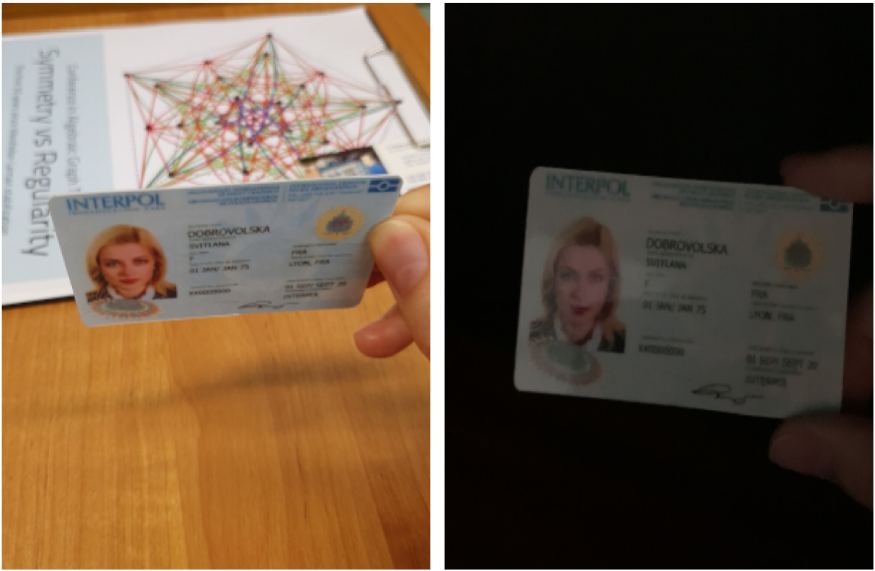21.06.2023 г.
US Patent Granted for AI Technology Implemented by Forbes Global 2000 List Members
Researchers at Smart Engines have been granted a US patent for a key component of smartphone document scanning technology using a video camera. The development is at the heart of the Smart Engines‘ range of SDKs used by global corporations and SMEs.
Unlike the handheld scanners used in previous generations of recognition systems, smartphones allow a video stream to be used for recognition. In this case, the scanning system inputs a series of images of an object of varying quality, including highlights, unusual perspectives or even darkness.

To solve the problem of mobile scanning, the authors of the patent – Research Assistant Programmer Olga Petrova, Senior Research Assistant Programmer, PhD in Computer Science Konstantin Bulatov, and CEO of Smart Engines PhD in Computer Science Vladimir Arlazarov – proposed to preliminarily evaluate the suitability of incoming frames for recognition, and for the best frames to share the results of their processing. In this way, the quality of document scanning could be significantly improved. They called this method weighted integration.
According to the description of the patent ‘Text recognition in a video stream using a combination of recognition results with per-character weighting’ No. 11,640,720, dated 2 May 2023, the Smart Engines scientists proposed to use the best 50% of frames based on image focus accuracy and recognition scores, and to assign a weight to each character based on these criteria.
For example, if part of the field were obscured by a finger or glare, the weight for a character would tend towards zero, whereas if the character were clearly visible, its value would be close to one. Once the weights have been assigned, the result of the video stream analysis is reconstructed using the algorithm proposed by the researchers.
‘The method of per-character weighting with focus estimation can significantly improve recognition quality in cases where the ID document is captured under non-ideal conditions – at a difficult angle, with insufficient lighting, in darkness, with glare. Per-character weighting also has a positive impact on the recognition result when the document contains long, continuous lines – for example, a machine-readable zone,’ says Vladimir Arlazarov.
This invention is the fourth patent that Smart Engines scientists have been granted in the United States, and the third consecutive patent that the company has received from the United States in 2023.
‘The patent for document recognition technology in a video stream is our third invention to be registered in the United States this year. America has now recognised our company’s leadership in the field of mobile scanning, and the current patent is proof of this,’ comments Vladimir Arlazarov.
The weighted integration method for scanning text in a video stream was invented by Smart Engines scientists in 2015. It became the basis for the Smart Engines SDK line – Smart ID Engine (scanning of ID documents, driving licences, visas, etc.), Smart Code Engine (scanning of QR codes, credit cards) and Smart Document Engine (scanning of business and corporate documents).
Scientific research for Smart Engines plays the role of a strategic investment, says Vladimir Arlazarov. ‘We are seriously investing in science and developing the scientific direction of our company, not only to produce products for today, but also to solve problems that have not yet arisen; and to be ready for the challenges of tomorrow,’ he explains.
Other news
28.06.2024Smart Engines scientists accelerated payment QR code recognition to 42 milliseconds
24.06.2024AI Company Smart Engines Continues Restoration of Fire-Damaged Forest Ecosystems
26.04.2024Smart Engines scientists have found a way to improve the efficiency of neural networks by 40%
More news »